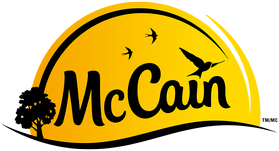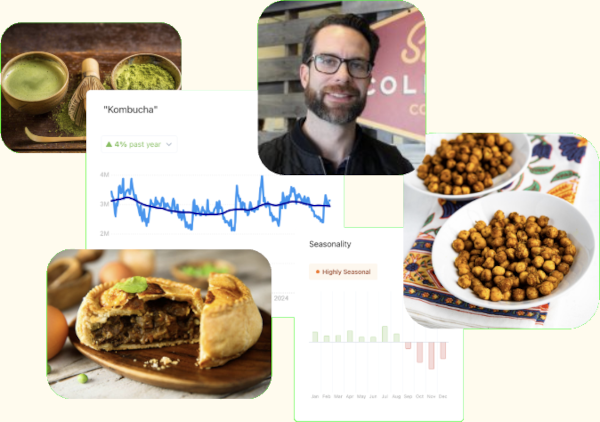Category Analysis - Potato Products

Overview of the Potato Products Industry
The potato products industry, a veritable cornerstone of global agriculture, thrives on the humble tuber, a botanical wonder that has nourished civilisations for centuries. The sector encompasses an array of processed goods, ranging from crispy chips to frozen fries, embraced by culinary cultures worldwide. According to estimates from the FAO, global potato production reached over 360 million tonnes in 2020, affirming the tuber's popularity across continents.
Situated at the intersection of agribusiness and innovation, this industry has evolved significantly, adapting to changing dietary trends, consumer preferences, and sustainability mandates. Companies are now keenly aware that in this age of information, the quest for healthier options and convenience never rests. The potato industry, with its surprisingly versatile product range, has risen admirably to this challenge.
Recent Trends in Potato Products
One of the notable trends influencing the potato products market is the growing trend toward plant-based diets. Consumers increasingly favour gluten-free, low-fat options, as well as organic products that echo their desire for cleanliness in their diets. According to Grand View Research, the global potato product market is projected to grow at a CAGR of 4.6% from 2022 to 2030.
At the same time, there's a rising populism around local, artisanal foods. Small-scale producers have found their niche in gourmet potato products, often using heritage varieties to craft unique offerings, which has piqued consumer interest. The burgeoning popularity of sweet potato products has also transformed the market dynamics, giving rise to novel items that challenge traditional expectations.
The Economics of the Potato Industry
The potato products industry is intrinsically linked to broader economic factors. The marginalisation of traditional farming practices has resulted in increased consolidation in the market. Major corporations, such as McCain Foods and Simplot, account for a significant market share, dominating the frozen and freshly processed segments. These giants have successfully leveraged economies of scale, offering consumers more accessible prices on their chips and fries.
However, despite the apparent growth, the industry faces several challenges. Fluctuations in commodity prices can adversely affect the profitability of potato producers. The recent supply chain disruptions caused by the pandemic have further underlined the industry's vulnerability, necessitating a swift pivot towards innovative production and distribution models.
Major Players in the Market
The potato products industry boasts a medley of key players, ranging from multinational corporations to innovative startups. As mentioned earlier, McCain Foods is a giant in frozen potato products, supplying to over 160 countries. Their commitment to sustainability and innovation is commendable, with initiatives aimed at reducing water usage in farming processes.
Simplot, an American agricultural business, is another stalwart, noted for its wide range of potato offerings, including their iconic frozen fries. Other notable names include Lamb Weston, known for their versatility in potato products, and Aviko, a European leader in the sector. Their successes underscore the inherent blend of tradition and innovation that characterises this industry.
Innovation and the Future
Innovation is the lifeblood of the potato products industry, driving both product development and operational efficiency. In recent years, there has been a marked shift towards health-conscious formulations. For instance, brands are experimenting with alternative cooking methods, such as air frying, which can reduce fat content while maintaining flavour.
Moreover, technological advancements in farming practices have resulted in improved yields and quality. Precision agriculture, enhanced by digital tools, is being employed to monitor crop health and optimise pesticide use. These innovations not only boost productivity but also cater to the increasing demand for sustainably sourced products.
Conclusion
As we peer into the proverbial crystal ball, the potato products industry appears poised for continued transformation. With ever-evolving consumer preferences, coupled with economic pressures and environmental considerations, producers must remain agile. Those who marry tradition with innovation, whilst embracing modern consumer values, will undoubtedly lead the way.
The timeline ahead promises exciting developments, and one can only hope that the humble potato continues to thrive on our plates and in our hearts. After all, as any good British pub will tell you, there's little that a well-cooked chip can't remedy.
Example Products in this Category:
Brands in this Category:
| Name | Story | Brand Categories | |
|---|---|---|---|
| Name | Story | Brand Categories | |
| Makikihi Fries | Started in 1983, Makikihi Fries was born and is now over 40 years in production and continues to grow from strength to strength. The fries are made from golden potatoes grown in South Canterbury, New Zealand. Owned by the Bleeker family, the brand emphasizes high-quality ingredients and gluten-free products. | Frozen Foods,Snacks,Potato Products |


